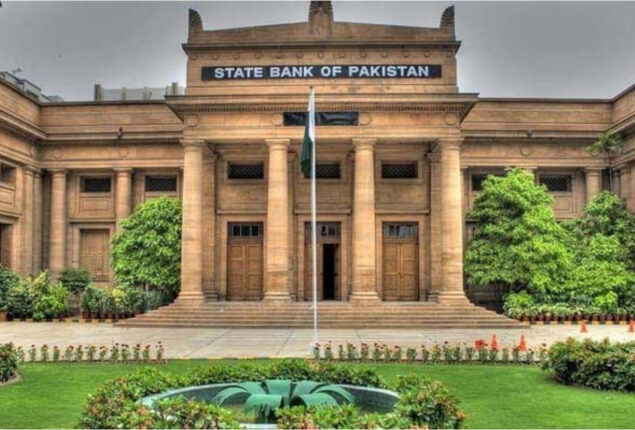SBP to announce monetary policy March 2
ISLAMABAD: The State Bank of Pakistan (SBP) will announce Monetary Policy on...

SBP raises key policy rate to 20 per cent to meet IMF condition
KARACHI: The State Bank of Pakistan (SBP) on Thursday increased the key policy rate by 300 basis points to 20 per cent to fulfil another condition of the International Monetary Fund (IMF).
At its meeting held on March 2, 2023, the Monetary Policy Committee (MPC) decided to increase the policy rate by 300 basis points to 20 per cent, the SBP said.
During the last meeting in January, the committee had highlighted near-term risks to the inflation outlook from external and fiscal adjustments.
Most of these risks have materialised and are partially reflected in the inflation outturns for February. The national Consumer Price Index (CPI) inflation surged to 31.5 per cent YoY, while the core inflation rose to 17.1 per cent in the urban and 21.5 per cent in the rural basket in February 2023.
“In today’s meeting, the MPC noted that the recent fiscal adjustments and exchange rate depreciation have led to a significant deterioration in the near-term inflation outlook and a further upward drift in inflation expectations, as reflected in the latest wave of surveys,” the central bank said.
The committee expects the inflation to rise further in the next few months, as the impact of these adjustments unfolds before it begins to fall, albeit at a gradual pace.
The average inflation this year is now expected in the range of 27 to 29 per cent against the November 2022 projection of 21 to 23 per cent.
In this context, the MPC emphasised that anchoring inflation expectations is critical and warrants a strong policy response.
On the external side, the committee noted that despite a substantial reduction in the current account deficit, vulnerabilities continue to persist. In January 2023, the current account deficit fell to $242 million, the lowest level since March 2021.
Cumulatively, the current account deficit — at $3.8 billion in July-January FY23 – is down 67 per cent, compared with the same period of the last year.
Notwithstanding this improvement, the scheduled debt repayments and a decline in the financial inflows, amid rising global interest rates and domestic uncertainties, continue to exert pressure on the foreign exchange reserves and the exchange rate.
The MPC noted that the forex reserves remain low and concerted efforts are needed to improve the external position. In this regard, conclusion of the ongoing ninth review under the IMF’s Extended Fund Facility (EFF) will help address the near-term external sector challenges.
Further, the MPC stressed on the urgent need for energy conservation measures to alleviate pressure on the external account and meet the import requirements of other sectors.
Recent fiscal measures — including an increase in the general sales tax (GST) and excise duties, reduction in subsidies, adjustments in the energy tariffs and the austerity drive — are expected to help contain the otherwise widening fiscal and primary deficits.
As highlighted in the earlier statements, the envisaged fiscal consolidation is critical for the economic stability and will complement the ongoing monetary tightening in bringing down the inflation over the medium-term.
The committee also emphasised that any significant fiscal slippages will undermine the monetary policy effectiveness in the context of achieving the price stability objective.
It assessed the impact of further monetary tightening on financial stability and the near-term growth outlook. The committee views that the risks to financial stability remain contained, given that the financial institutions are broadly well-capitalised. However, on growth, there exists a trade-off.
The MPC, nonetheless, reiterated its earlier view that the short-term costs of bringing down the inflation are lower than the long-term costs of allowing it to become entrenched. Barring unexpected future shocks, the MPC noted that today’s decision has pushed the real interest rate in the positive territory on a forward-looking basis, which will help anchor the inflation expectations and steer it to the medium-term target of 5 to 7 per cent by the end of FY25.
The committee also decided to hold its next meeting on April 4, 2023.
Catch all the Sports News, Breaking News Event and Latest News Updates on The BOL News
Download The BOL News App to get the Daily News Update & Follow us on Google News.